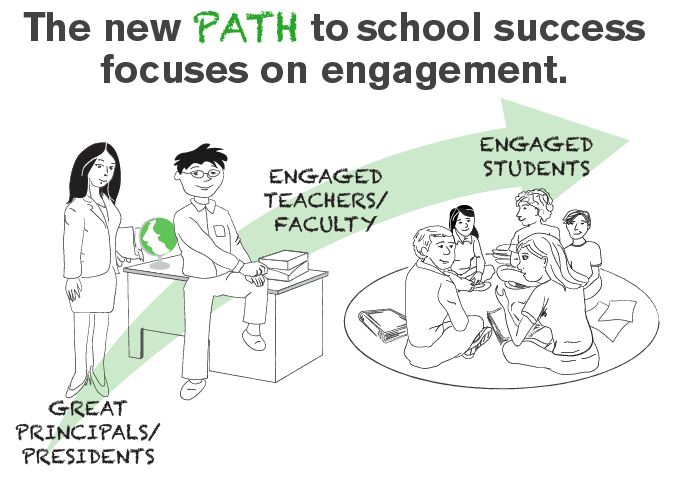Every teacher in America shares in the responsibility of preparing students for a global economy and for tomorrow's uncertainties. Unfortunately, fewer than one in every three teachers are excited to be at school and fully engaged in the profession of education. This means that nationally, more than 2.5 million teachers of the 3.7 million K-12 teachers in the country are not bringing their best selves to work every day. What this means for me is that two of my son's six teachers are fully invested in his growth; four are not.
To make matters worse, Gallup now finds that teachers' engagement drops over time -- the more years they spend on the job, the less engaged they become.
But, there is a solution that is actually pretty simple. We need to change how teachers are treated in the workplace. Gallup research shows that teachers love what they do and say they have opportunities to grow in their careers, but it also finds that they struggle in the workplace. Teachers are the least likely of all occupations to say "at work my opinions seem to count." They are dead last. We have to change this.
What teachers need more than anything else right now are better managers. Teachers need principals who listen to them and treat them like valued, trusted colleagues. Gallup research has consistently shown the critical role of managers in engaging their team members. For example, voluntary turnover in most cases can be attributed to the employee's direct manager. Gallup research also shows managers who are directly supervised by highly engaged executive teams are more likely to be engaged than managers who are supervised by disengaged executive teams.
Gallup works with many schools and principals across the country. We need to learn from and replicate what great principals -- like Sally Cohenour of SIATech High School in California -- are doing right. Cohenour gives teachers the autonomy they crave. She recognizes their successes with students by nominating them for awards and telling stories of their triumphs every chance she gets. Mitch Mollring at Russell Middle School in the Millard Public School System in Nebraska is another example of a stellar principal. He is an expert at building relationships. With teachers, he gets to know them personally and invests in their strengths by getting them to do more of what they do best. He has worked with his teachers to lower the disturbing national trend whereby student engagement drops when children move from elementary to middle school.
Gallup is committed to tracking teachers' engagement in their jobs every year and will continue to report on how the nation's educators are faring. But we all need to work together to provide our principals with the best information to select and develop the best teachers.
I encourage each of you to walk through your neighborhood school this fall. Chances are, for every spirited, engaged teacher you observe, you will see two who are just going through the motions. And for every 10 teachers, you will see one who is undermining the teaching and learning process through their active disengagement.
Share your observations with your principals and ask the principal what she or he can do to better engage our teachers. If they are at a loss for next steps, let's encourage our principals to do these three specific things:
- Ask teachers important questions about curriculum, pedagogy, and schedules. Listen to their answers. Incorporate their feedback into changes and decision-making. Trust will grow.
- Partner the most engaged administrators and teachers with teachers who have been in your building for five years or less. Give them time to collaborate on student-centered projects. Enthusiasm will spread.
- Remove the most disengaged teachers from the classroom for a brief period. Invest in what they do best with continuing education and eliminate major barriers to their engagement. Disruptive professional behavior will decrease.
Read more about these findings on Gallup.com.
Learn more about how Gallup Education can help your K-12 school or university succeed. Contact us at Education@gallup.com.



